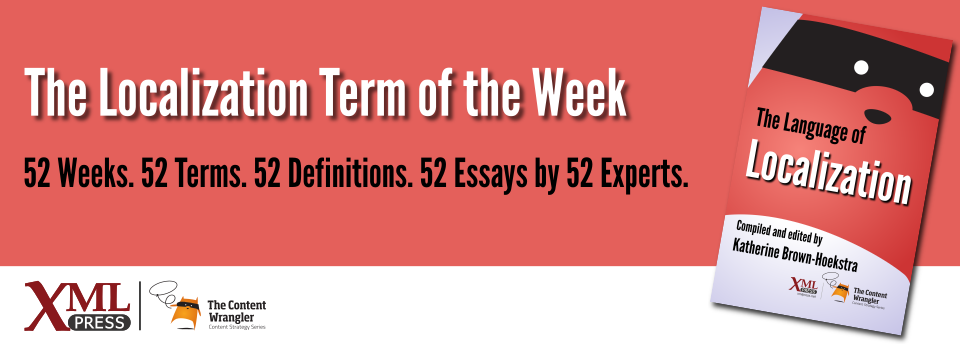What is it?
The ability to speak or write a foreign language easily and accurately and to comprehend most communication.
Why is it important?
Fluency enables the user of a language to focus on making connections among ideas. By making connections, the reader can focus his/her attention on comprehension. For most languages, fluency means having a minimum of 15,000 to 20,000 words in your vocabulary and being able to use them correctly in context[Liedel 2014].
Why does a technical communicator need to know this?
In the localization industry, fluency is a key concept. It goes far beyond the basic definition of listening, speaking, reading, and writing. Fluency includes understanding the intricacies of language and cultural nuances, as well as mastering expressions, colloquialisms, and even onomatopoeia[Duolingo 2014]. Clients expect their translations to relay the same ideas as the original source content. Language professionals must not only constantly work to remain expert in both the source and target languages, they must be fluent in the industry they specialize in.
Cultural fluency is key to global customers. It takes more than physical expansion and translated documents to satisfy global clients. The one-size-fits-all approach does not work with global customers, and many large corporations have paid dearly for failing in this area.
With a clear insight into those markets, as well as deep knowledge of consumer preferences, localization vendors can help clients avoid such mistakes. A customized approach feels real and authentic to consumers. Companies can then increase customer engagement on global websites, build trust, and expand brand awareness.
It is crucial to think like the customer and to be culturally fluent to secure revenue growth. Business professionals doing business internationally have to be culturally fluent to work together effectively.
References
- [Duolingo 2014] Duolingo discussion about fluency vs proficiency: Duolingo (2014). Interesting perspective on fluency vs. proficiency.
- [Liedel 2014] What is Fluency?: Liedel, Emily. (2014). Article about what fluency in a second language means.
- [Wyner 2017]Choosing Your Vocabulary: Wyner, Gabriel. (2017). Fluent Forever blog post about how to build your vocabulary in a new language.
- [Johnson 2013] Lexical Facts, The Economist: The Economist. (2013). Johnson column that talks about fluency levels.
- [Vocabulary test]Test Your Vocabulary Quiz: Fun quiz that tests your English language vocabulary.
- [Dahlgren 2008] Oral Language and Vocabulary Development: Kindergarten & First Grade: Dahlgren, Dr. Mary E. (2008). PDF format. Slide presentation that explains language development in children.
- [Duebel 2010] Vocabulary: Does Size Matter?: Duebel, D. (2010). Edublog post that discusses whether vocabulary size is more important than how one uses the words he or she knows.
- [Shea 2010] Vocabulary Size: Shea, Ammon. (2010). New York Times article about vocabulary size and how that vocabulary gets used.

